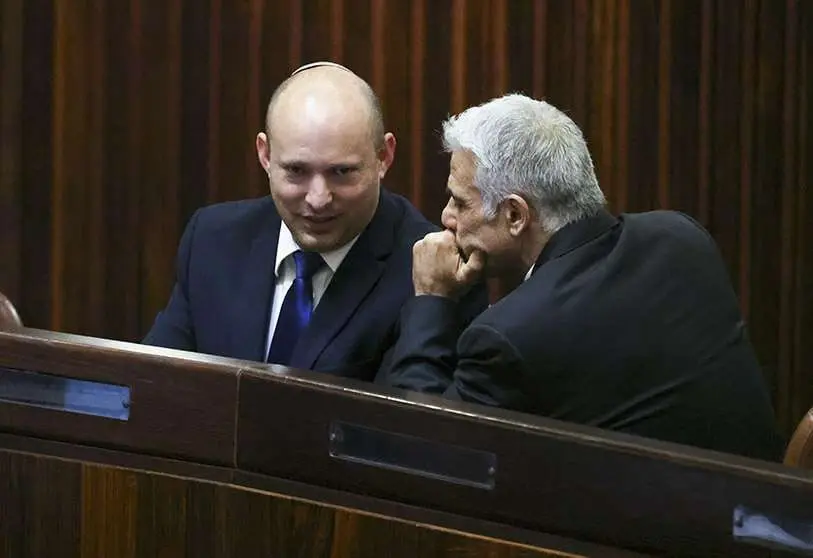Bennett's Israeli government completes its first anniversary in deep crisis

Naftali Bennett's Israeli coalition government is today celebrating the first anniversary of its formation in the midst of a crisis, with no consensus to move forward with basic policies and facing threats from multiple fronts that could cause its downfall.
The government, made up of eight parties from across the ideological spectrum - from the far right, centre, left and even Arab Islamists - was created a year ago in an unprecedented move to oust Benjamin Netanyahu from power, after four elections in less than two years that kept Israel in a deep political paralysis.
However, 365 days after its creation, the coalition's ability to govern has eroded to its worst point: constant and growing internal disputes have left it reeling, the voices predicting its end are growing louder and no one is ruling out a hasty end to the legislature that would force the Jewish state to go to the polls again.
The government lost its majority in April - it now only has the fragile support of 60 MPs in a chamber of 120 - and finds itself unable to pass laws and regulations basic to stable governance.
Added to this is the pressure from the opposition, led by former prime minister Netanyahu, which is lurking with all kinds of manoeuvres to overthrow the executive. Among other things, he is boycotting the approval of laws and seeking the defection of MPs from the most right-wing flank of the coalition so that they will switch to his side.
His goal is to obtain the minimum support of 61 MPs to force the calling of elections following a motion of censure against the government, something they have not yet achieved, but which Netanyahu and his right-wing opposition partners continue to pursue relentlessly.
Two months ago they managed to drag in MP Idit Silman, from Bennett's own ultra-nationalist Yamina party, and these days they are seeking to do the same with Nir Orbach, from the same party and opposed to the influence of the left-wing parties in the government.
In the face of all this, Prime Minister Bennett yesterday urged the government to stay on its feet "for the sake of the Israeli people".
"I admit that this is not the government that most of us expected," but "we have shown that people with different, even contradictory, views can work together for the good of the country," he said at the start of the weekly cabinet meeting. He added that the coalition led the country "from chaos to normality" and "cannot afford to break up".

The Foreign Minister, Yair Lapid, also called for unity and highlighted the fact that the government had managed to "bring back the idea of a common good", after twelve consecutive years of governments with a personalist leadership and marked by the figure of Netanyahu.
"This is a historic government" that "has improved life in Israel in all possible parameters: security, economy, foreign relations and the rule of law", Lapid remarked.
This year, the head of Israeli diplomacy also sought to improve ties with key actors such as the Palestinian National Authority, Egypt, Jordan and the European Union, after friction with the previous head of government had broken down.
However, the last straw in the coalition crisis in recent weeks has been internal and over a rather routine issue: the renewal of an emergency regulation extending Israeli law to West Bank settlers since 1967.
These ordinances have been extended for decades, but now the opposition - despite being ideologically in favour of the measure - is refusing to renew them in order to sabotage the government, which last week failed to pass the measure after a first vote in the House.
On the other hand, there are also two Arab MPs in the coalition who do not want to support the ordinances and other right-wing or nationalist measures for ideological reasons. For days, their colleagues have been trying to convince them to change their position or resign, so far without progress.
All this has created even more tension in the executive, which could receive a coup de grâce if it fails to renew the regulations before they expire at the end of June, if it ends up losing the backing of any more MPs or is further weakened by other internal disagreements, in a crisis that seems increasingly irresolvable.








